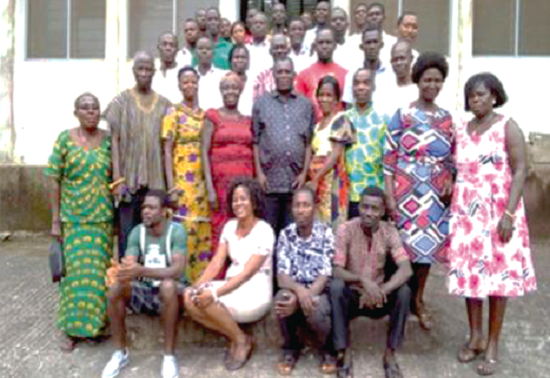
Plan to scale up prevention of HIV from mother-to-child launched
The Western Regional operational plan for the scaling up of the Prevention of Mother to Child Transmission of HIV (PMTCT) and Paediatric HIV services has been officially launched in Takoradi with the main objective to fast-track the implementation of key services to achieve the elimination target.
The Government of Ghana (GoG) has shown its commitment to the elimination of mother to child transmission of HIV under the five- year National Strategic Plan on HIV and AIDS, which places particular emphasis on scaling up PMTCT services in the country.
The GoG, with funding from the Global Fund and other partners, has prioritised four high burden regions; namely, Ashanti, Eastern, Greater Accra and Western for accelerating the overall PMTCT services and to achieve the expected target.
There are key challenges, however, to the effective operationalisation of PMTCT and Paediatric Anti-Retroviral Therapy (ART) services, according to the Western Regional Director of Health Services, Dr Emmanuel K. Tinkorang.
The regional health directorate, with support from UNICEF, has developed regional, municipal and district PMTCT operational plans to accelerate PMTCT services in the region, and thanked the organisation and the Ghana Health Service (GHS) for initiating the development of the programme and funding it.
At the launch, Dr Tinkorang indicated that the programme focused on prevention and management of HIV in children. He also said, ‘‘The children are the future of this nation and child survival and development is key for the socio-economic development of our country.’’
He explained that the four prong approach of eliminating mother to child transmission included prevention of HIV among the general population, testing and treating all HIV infected individuals, encouraging family planning in couple with HIV or supporting discordant HIV positive couple to have children.
‘‘The prevention of mother to child transmission of HIV remains a major intervention to prevent HIV in HIV positive mothers. The early infant diagnosis (EID) will enable couple to identify children who are HIV as early as possible so as to initiate intervention to reduce the impact of the disease on such children,’’ the regional director noted.
Dr Tinkorang disclosed that the region had reduced its HIV prevalence rate from 2.4 per cent in 2014 to 2.0 per cent in 2015, and added that the percentage of children infected with HIV was also reducing, due to the hard work of all stakeholders.
The Western Regional HIV Co-ordinator, Dr Roland Sowa, in an overview, indicated that currently there were 15, 987 adult HIV clients, out of which 8, 817 were on ART and that for the total 647 child clients, 321 were receiving the therapy.
